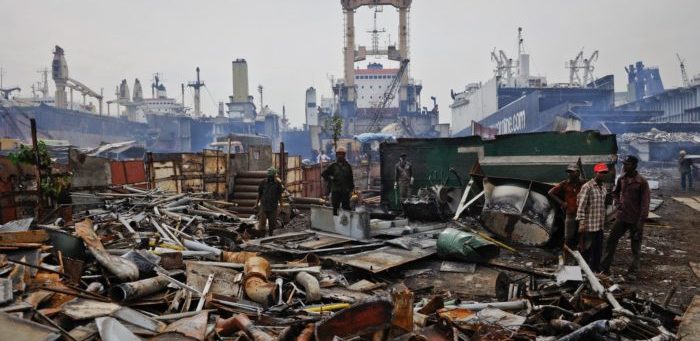According to NGO Shipbreaking Platform, since 2020, 94 South Korean-owned vessels have been dismantled on the shores of Bangladesh and India under dangerous conditions, putting workers’ lives at risk and causing irreversible environmental damage.
In the last two years alone, three serious accidents, leading to deaths and injuries, have been reported on board South Korean vessels sent to South Asia for breaking. Yet, despite repeated calls for accountability, South Korean ship owners persist in selling their end-of-life assets to cash buyers and circumvent international regulations.
Additionally, in 2024 alone, at least 13 vessels were exported from South Korea to India and Bangladesh for breaking. International law is clear: all transboundary movements of hazardous waste, including end-of-life ships, must obtain Prior Informed Consent (PIC) from importing countries in line with the Basel Convention.
Furthermore, the export of end-of-life ships from OECD to non-OECD countries is strictly prohibited. Violations of these laws are serious environmental crimes, as evidenced by recent cases in the Netherlands and Norway where shipowners have faced heavy fines and prison for exporting vessels for scrapping in India and Pakistan.
The NGO Shipbreaking Platform calls on all South Korean shipowners to stop scrapping their ships on the shores of South Asia. South Korean authorities must also act to end this toxic trade in breach of their international responsibilities under the Basel Convention, and actively promote a responsible and sustainable domestic ship recycling sector.

































































